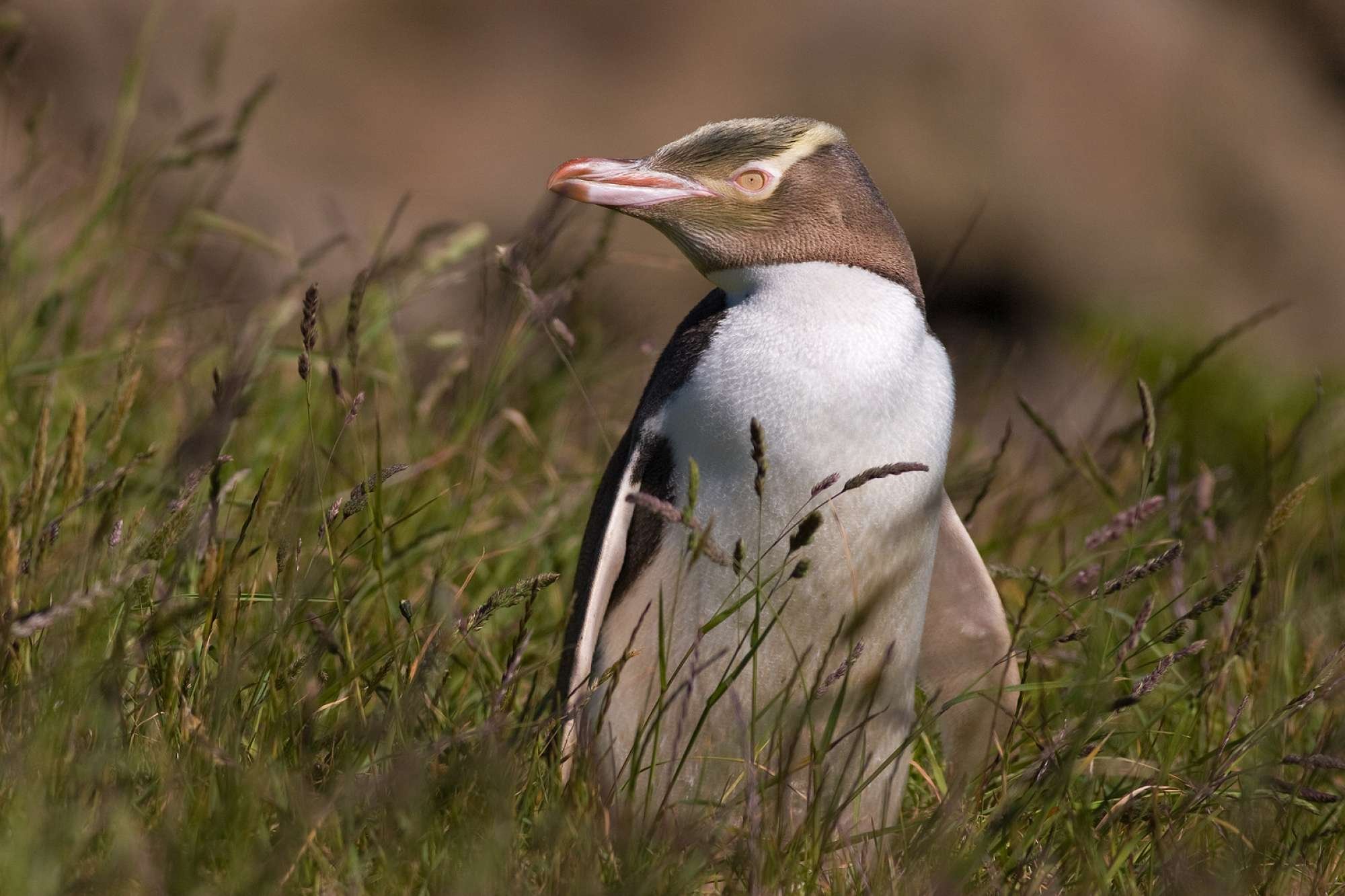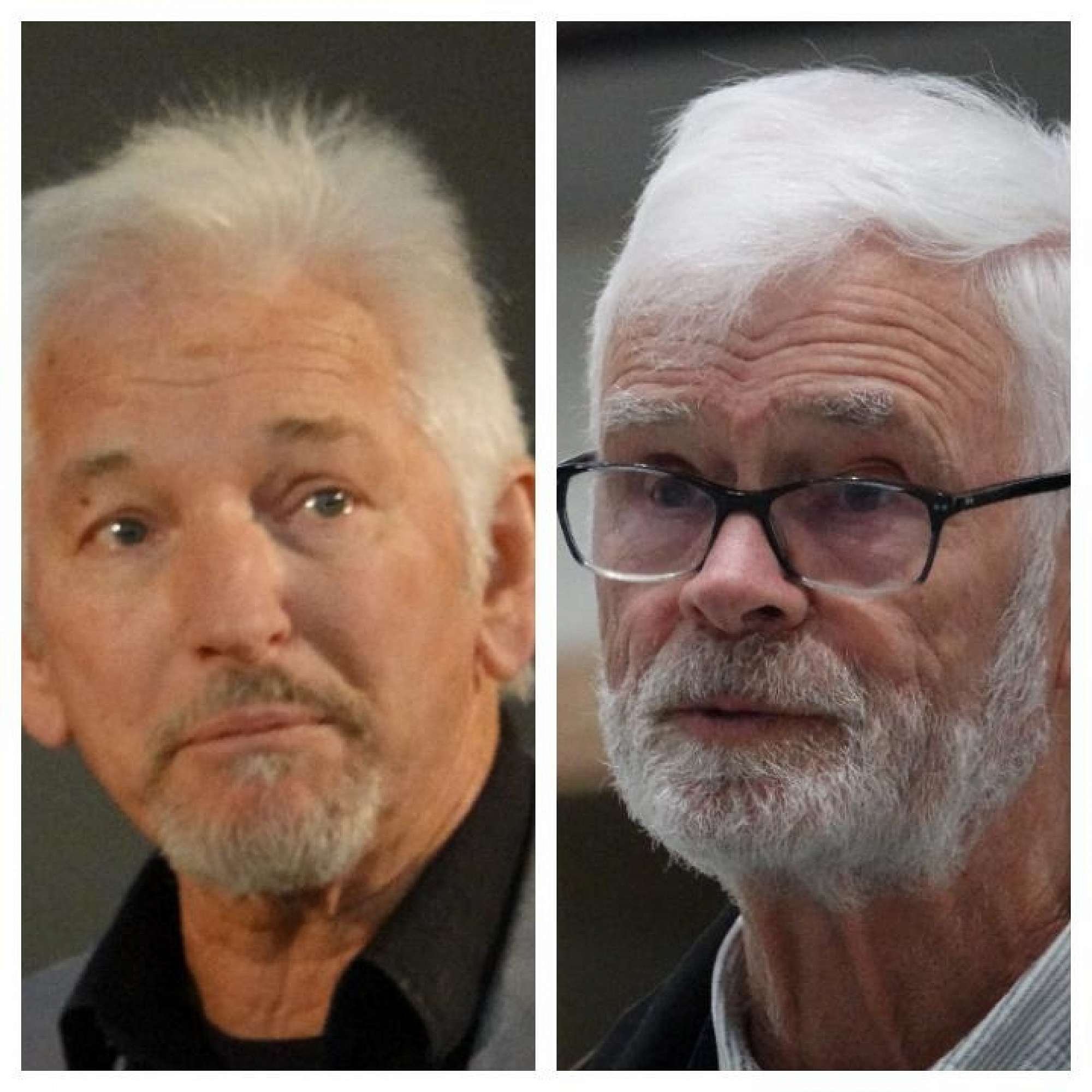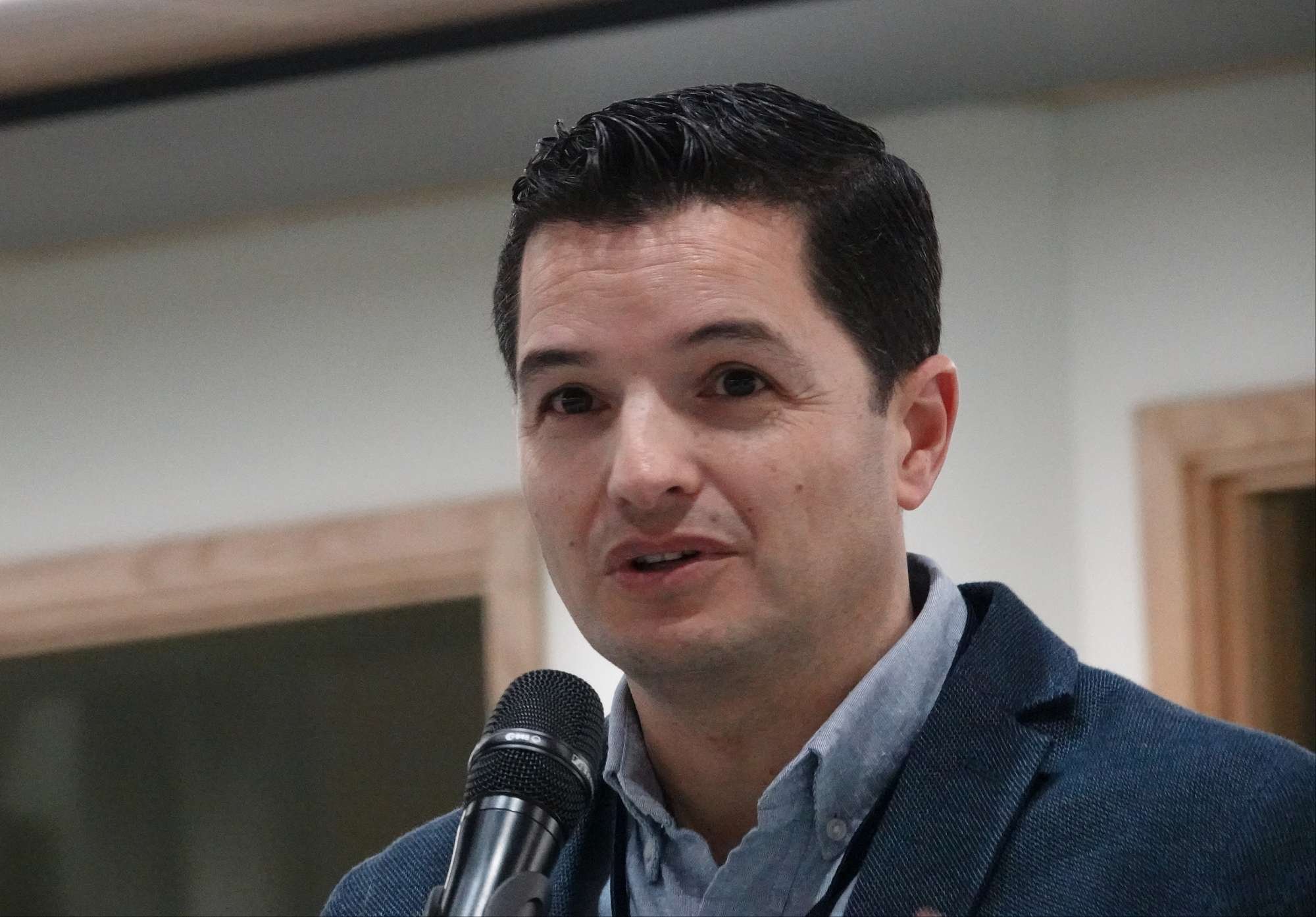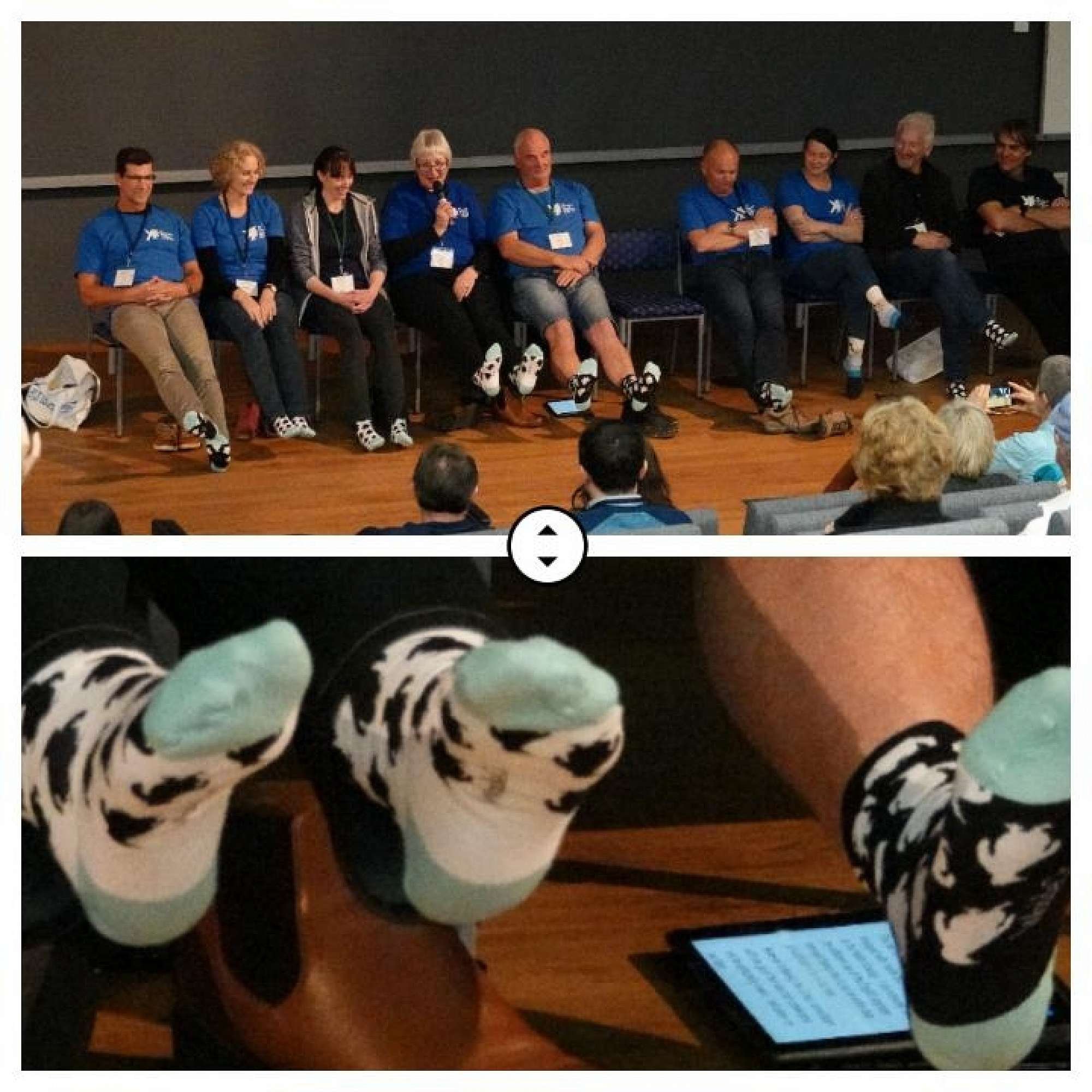International Penguin Conference call to action
Izumi Uchida Schmidt, Wild Dunedin — Dec 2, 2019
New Zealand is home to more penguin species than any other country - of the 18 species in the world, 13 of them can be found in New Zealand. Dunedin launched the first International Penguin Conference in 1988 and in August 2019 hosted 272 penguin scientists at the 10th International Penguin Conference. Izumi Uchida-Schmidt was there and shares some of the findings from this important gathering.
Hoiho - yellow-eyed penguin. Image by: Paul Sorrell
In 1988 Dr. Lloyd Davis of Otago University and Dr. John Darby of Otago Museum, conceived and launched this special conference to connect the world’s penguin experts.
The two responsible for the International Penguin Conference, Dr Llyod Davis (left) and Dr John Darby. Image by: Izumi Uchida-Schmidt
Around that time, the threat of invasive species and lack of penguin nesting sites due to deforestation were recognised and initiatives such as Penguin Place and the Yellow-eyed Penguin Trust began.
80 scientists came to that first conference. Dr. Davis reckoned the participants were 80% of the world’s penguin specialists, and it has provided an invaluable opportunity for working together globally ever since.
31 years on, and again in Dunedin the attendants have grown to 272, and Dr. Davis thought this was still about 80% of the world’s penguin specialists.
I was, to be honest, a little bit shocked - I thought there must be far more penguin researchers in the world by now!
“The future of the penguins depends on the people in this room. The fate of the penguins is in our hands” Dr Pablo Borboroglu. Image by: Izumi Uchida-Schmidt
Argentine marine biologist Dr Pablo Borboroglu is President and Founder of the Global Penguin Society (GPS), the world’s first global coalition for the protection of penguins said at the conference...
“The future of the penguins depends on the people in this room. The fate of the penguins is in our hands.”
What a huge responsibility for a small group of people.
The subject matter of the 70 oral presentations varied hugely, and some distinctive research areas are emerging and developing thanks to new technologies. For example, loggers and cameras are helping us understand what penguins are doing at sea.
In the past, penguin studies were restricted to land-based ones, such as breeding, social interaction, vocalization, nest site use, etc.. Now that we have access to their true home the ocean, our knowledge is expanding. Scientists now have data on their feeding range, seasonal and periodical dispersal, even underwater vocalization and social interaction. This ocean data is important for penguins at the juvenile stage when they tend not to spend time ashore.
Tiny DNA pieces found in the environment (eDNA) can paint new pictures of the ocean. Researchers collect sea water, and analyse the little pieces floating in it to find out the species that are in that water. It is a non-invasive, less-expensive way of finding out what creatures (especially prey species) are living in the penguin world.
Anyone can join the serious research too. Penguin Watch is a citizen science project, and there are a lot of time-lapse or aerial pictures from Antarctica on its site. Your job is to spot penguins in each picture, count the numbers of adults, chicks and eggs, and submit the findings.
Computers store and process enormous amounts of submitted data and eventually we will know what is happening in those inaccessible areas.
All these new technologies and research methods are exciting, but in reality, the time for penguins is running out.
Of the all the penguin species, more than half of them are vulnerable or endangered. Three species are critically endangered: African penguins, Galapagos penguins, and our own yellow-eyed penguins (hoiho).
Our hoiho (yellow-eyed penguin) is in real danger, and scientists say that if no measures are taken, by 2060 (if not earlier) we will lose them from the mainland. The sub-antarctic population we do not know enough about to know how to protect them .
Climate change was mentioned many times during the conference, and will play a significant role for most penguins’ future. Unfortunately, past data shows temperature rise does not benefit penguins - it will most likely further complicate the conservation plans.
Happy Feet!…a lighter moment when in one panel discussion the presenter proudly showed the audience their penguin socks. Image by: Izumi Uchida-Schmidt
Science should be the torch for showing the way.
Hoani Langsbury, active ecologist, iwi leader representing Te Runanga Ōtakou and many conversation organisations including the Otago Peninsula Trust. Image by: Izumi Uchida-Schmidt
One quote that gave me and others at the conference a sense of hope for the future was a translated Maori proverb from Hoani Langsbury.
“If knowledge is gathered, enlightenment will follow”
I am thankful that the conference happened now and in Wild Dunedin.






